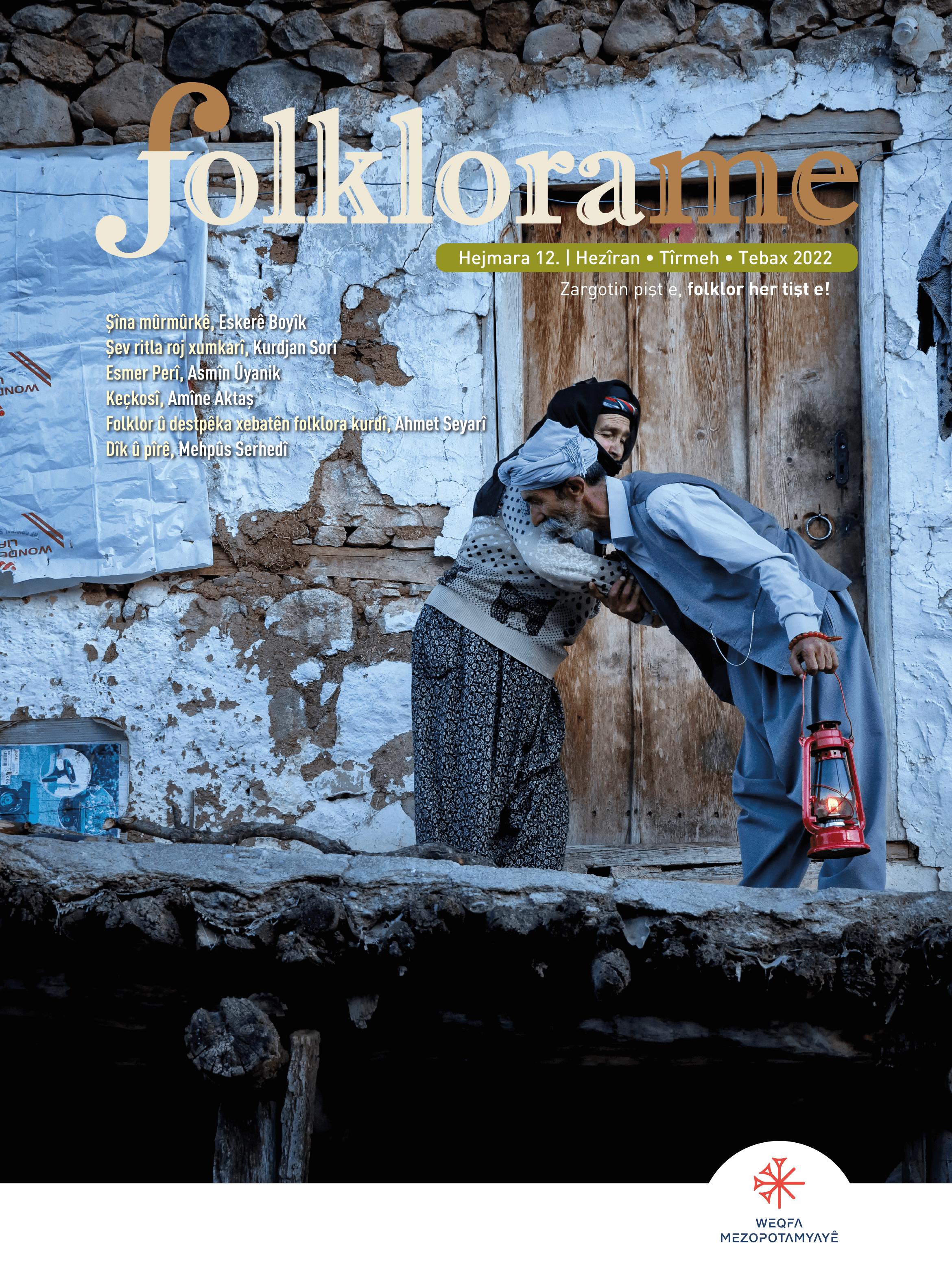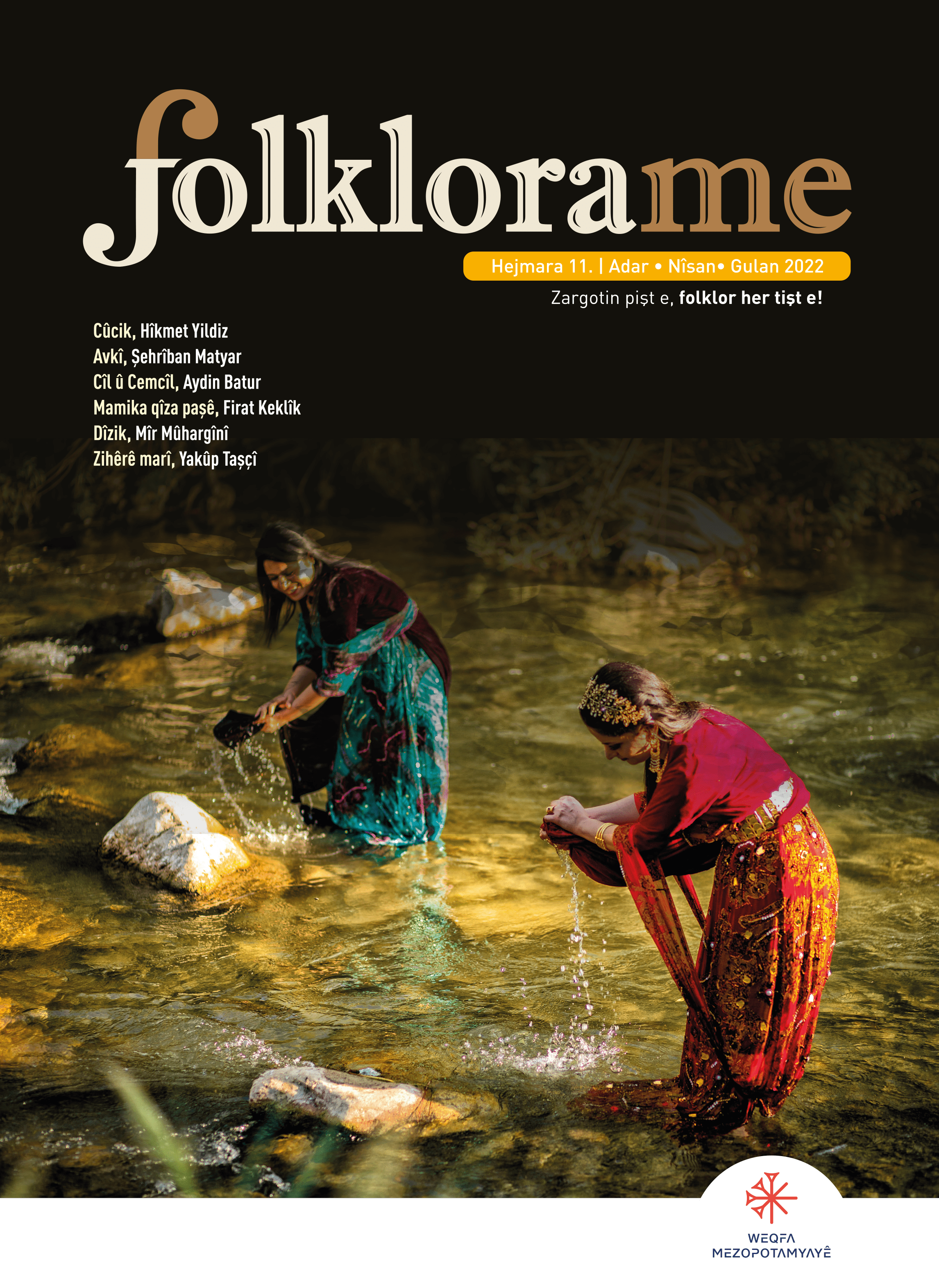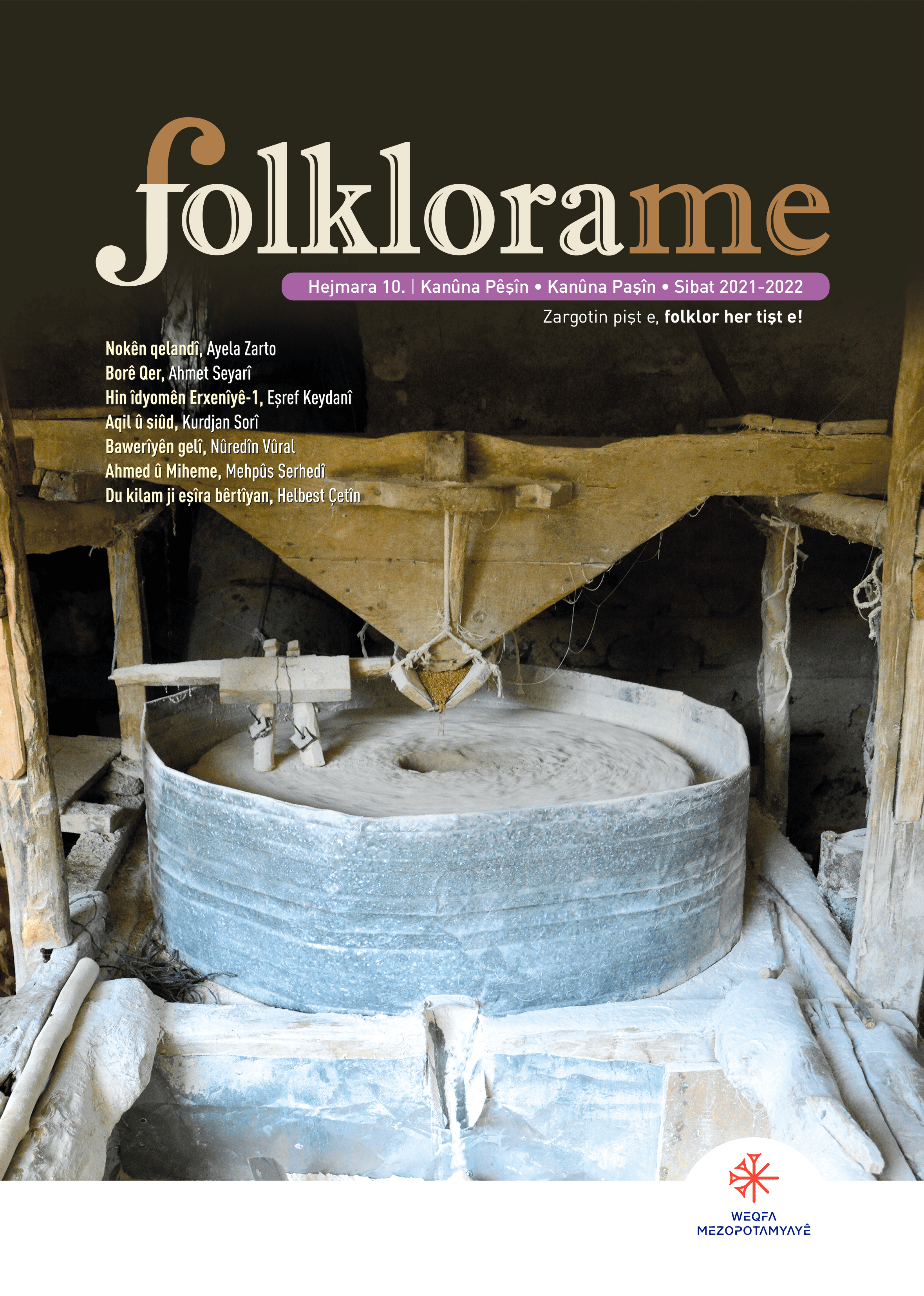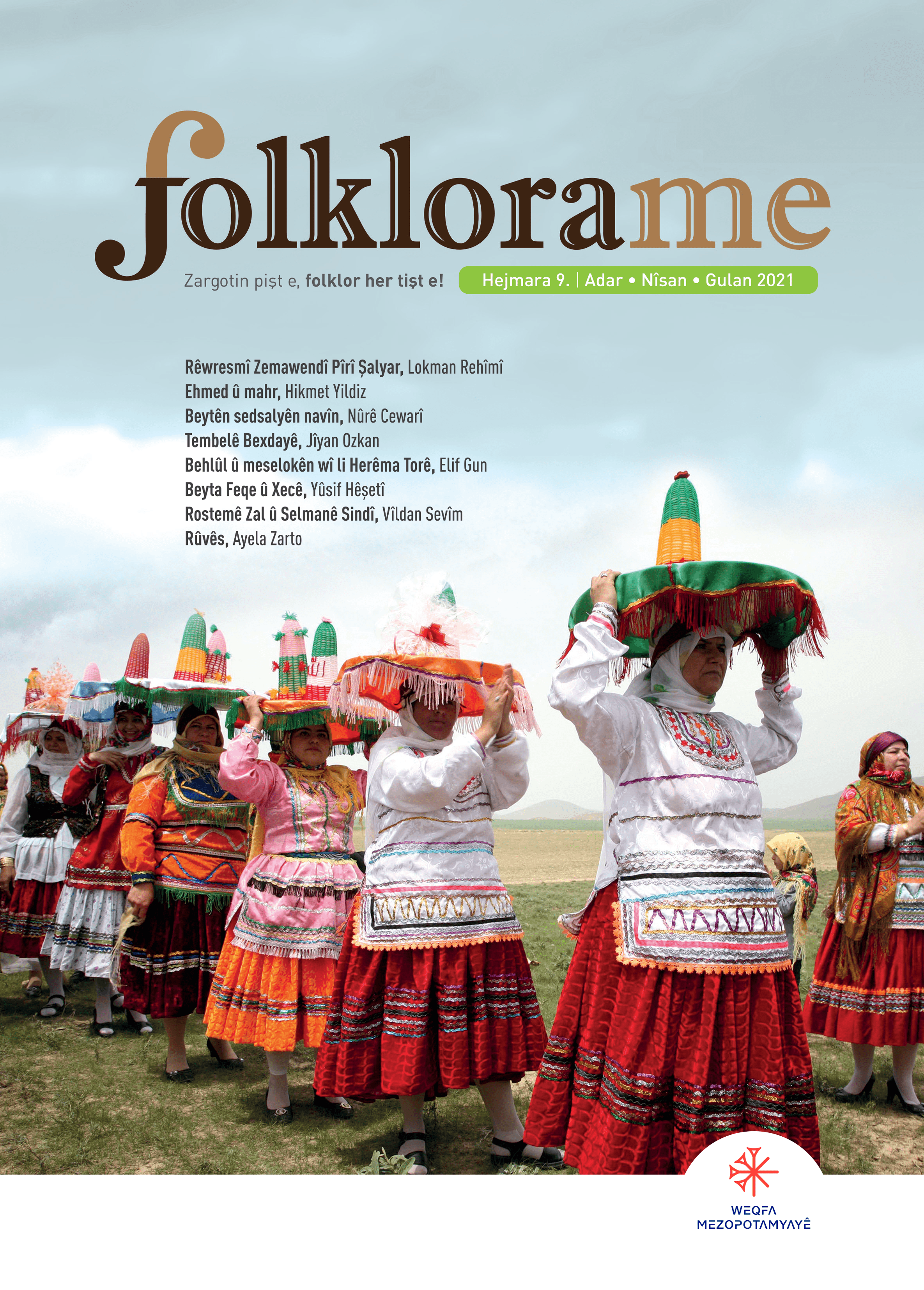Editorial
In 2022, Kurdish Studies will enter its tenth year of existence. During this first decade, our field has continually evolved and diversified and, as we face new challenges and invest in original approaches, it has also become possible to start addressing a few ‘blind spots’ and neglected topics of research on the Kurds. The experiences of Kurds in the former Eastern bloc, and the important scholarship and literature they produced, represent such neglected topics of inquiry. This is a regrettable oversight, notably because these scholars, journalists, and artists played a crucial role in maintaining a tradition of Kurdish knowledge and erudition at a time when the study of the Kurds was hindered in the Middle East and underrepresented in the West.
From the Riya Tezenewspaper, founded in 1930 in Yerevan, to the ‘Kurdish Cabinet’ in Leningrad/Saint Petersburg (active 1959-2005), some of the focal points of Soviet-based scholarship on the Kurds are now better known; yet, many fascinating figures of this era have remained in the shadow of the iron curtain, their names unknown, their contributions untaught, and their histories unwritten.
It is the story of such a scholar, Abdullah Jalal Fatah (1936-1985), that is examined by Joanna Bocheńska and Karwan Fatah-Black in our opening article for this issue. Fatah was a Kurdish student from Sulaimani who went to Poland in the 1960s, and eventually wrote a dissertation on the ‘Development and Dissemination of the Kurdish Culture in Iraq’ (Warsaw University, 1978), the first thesis on the Kurds written at a Polish university. This unpublished work is, for the first time, presented to a scholarly audience by the authors, who also provide us with an in-depth analysis of Fatah’s vision of culture and the role of intellectuals in society.
Indeed, many Kurdish intellectuals felt that, beyond carrying out scholarly work, they had a duty to enlighten their fellow Kurds and work for the advancement of the Kurdish nation. These ideas often developed outside of Kurdistan, particularly in the countries of the former Eastern bloc, where Iraqi Kurdish students were sent in the 1970s. One of the countries that hosted some of these students was Bulgaria, and its Kurdish policy in the years 1940s-1980s is the object of Étienne Peyrat’s article.
In this piece, published in the framework of the RUSKURD program on Kurdish-Russian and Soviet relations, Peyrat shows how these students tried, alongside other exiles, to campaign for Kurdish rights and sway Bulgarian policy towards the Kurds. Yet, they were, in this pursuit,no match for the governments of the states ruling over Kurdistan, and the Kurdish issue remained, in the Central European countries, a ‘sub-piece’ of Iranian, Iraqi, Syrian, and Turkish politics.
Kurdish relations with another superpower, the US, are at the centre of Özüm Yeşiltaş’s article, which examines the question of state and non-state relations through a case study of US attitudes towards Rojava and, later, the Democratic Federation of Northern Syria. Yeşiltaş shows that while the Kurds ‘successfully capitalized on the regional structural changes to advance their political agenda’, they were faced with an incoherent US policy, as the US ‘cooperates with the Kurds militarily, yet refuses to recognize the political consequences of this military alliance’. This is an important article on a subject that, in light of the recent withdrawal of US forces from Afghanistan and its dire consequences, is critical to the future of both the DFNS and the KRG.
In our last article, Serena Hussain draws on her fieldwork in a small city in the UK to show how migrant Kurds in this diaspora community primarily identify with their ethnic Kurdish identity, rather than adopting a unified Muslim identity. She emphasises, however, that this is by no means a reflection on how religious these individual Kurds may be; rather, she finds, it is due to the political repression they have faced in their home countries, leading to a ‘greater politicisation of ethnicity’. This is a welcome article which reminds us that the question of religious and ethnic identity, and the way they interact and intertwine, is more complex than is often portrayed and considered.
Throughout history, Kurds have made important contributions to Islamic thinking and scholarship, and they continue to do so, as attested by the life and career of Qedrî Yildirim (1959-2021), a modern-day Taftazanî who had studied in the traditional system of Kurdish madrasas and went on to become a prolific writer on matters related to Islam and the Kurds. He passed away in March of this year, and is remembered by Mehmet Kurt, one of his former students, who has written an obituary in memory of his seyda.
In the same month of March 2021, the Kurdish scholarly community suffered another tragic loss with the passing of Kamal Mazhar Ahmad (1937-2021), the ‘doyen of Kurdish historians’. Similarly to Abdullah Jalal Fatah, Kamal Mazhar Ahmad had spent the 1960s studying in Baku (Azerbaijan), defending his doctoral dissertation in 1963, and he went on to become a towering figure in the study of Kurdish history. His life and works are memorialised in an article by Martin van Bruinessen.
Both Qedrî Yildirim, who was Siirt’s HDP member of parliament from 2015 to 2018, and Kamal Mazhar Ahmad, a former secretary general of the Kurdish Academy in Baghdad, demonstrated how academic work could go hand in hand with political activities and community service. Such was also thecase of two important figures of the Kurdish community in Kazakhstan, Kinyazê Îbrahîm Mîrzoyev (1947-2021) and Nadîr Nadîrov (1932-2021), who both passed away in August 2021. They will be remembered by their indefatigable efforts, through Soviet-era deportations and economic hardships, to pass on Kurdish culture and keep it alive far away from Kurdistan, setting an example for new generations of Kurdish scholars to follow.
Acknowledgments:
The editorial team would like to thank Mahir Tornap and Shenah Abdullah for translating the article’s abstracts into Zazaki and Sorani for this issue.





